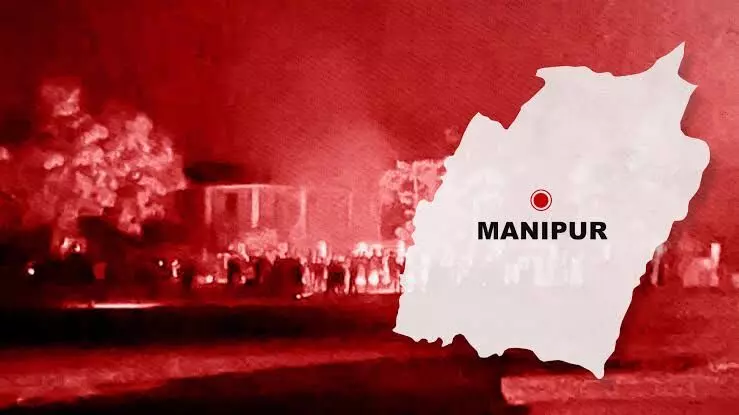Manipur: India’s Political Blind Spot and an Emerging Geopolitical Hotspot

When Prime Minister Narendra Modi rebranded the Look East Policy into the more aggressive Act East Policy, the strategic vision was clear: enhance India’s engagement with Southeast Asia by leveraging the Northeast region (NE) as a bridge. Under this policy thrust, Modi celebrated the cultural and economic potential of the region, calling the seven northeastern states, along with Sikkim, “Ashta Lakshmi”—the eight goddesses of prosperity.
However, that promise has turned into a paradox.
For the past two years, Manipur, a critical gateway in India’s Northeast, has spiraled into unprecedented chaos: ethnic conflict, gun battles, thousands displaced, and a breakdown of governance and trust.
As of November 22, 2024, 258 people have been killed and 60,000 have been displaced due to the violence. Earlier figures from May 2025 also reported over 1,500 injured. Furthermore, the conflict has seen significant destruction, with 4,786 houses burnt and 386 religious structures vandalized, including temples and churches. The army, paramilitary forces, state police, and intelligence agencies all seem locked in reactive, confused roles while armed militias and divided communities walk the streets in mistrust and fear. The heartland of India’s Act East vision has become its most unstable zone.
Yet Prime Minister Modi has remained silent. A leader known for his image-centric governance and frequent visits across India—especially the Northeast—is now absent and unheard on the Manipur crisis. The silence is not just political; it’s strategic—and increasingly suspicious.
Is There a Larger Game Afoot?
Many observers ask: Is Manipur simply a law and order failure, or something deeper?
Historically, India has engaged in covert counter-insurgency tactics, such as the now publicly acknowledged Operation Jhumjhum in 1985, which involved psychological warfare and political engineering in the Bodoland region of Assam. It was a shadow war played under the radar of national discourse, and some retired intelligence officers have since admitted that such actions warrant transparency and accountability.
Could a similar shadow game be underway in Manipur?
The region’s **ethnic complexity—Meiteis, Nagas, Kukis, even Tamil settlers—**offers fertile ground for power manipulation. The Meitei people constitute approximately 53% of Manipur's population, primarily residing in the Imphal Valley, which makes up about 10% of the state's geographical area. Various Naga tribes account for about 20% of the population, with an estimated 600,000 Nagas living in Manipur. The Kuki-Zo tribes represent about 16% of the state's population. Additionally, the town of Moreh, near the Myanmar border, has a relatively large population of around 17,000 Tamil settlers. Add to that Myanmar, India’s volatile neighbor now under military rule and heavily influenced by China, and Manipur becomes more than a domestic issue. It becomes a frontline in an undeclared regional power contest.
The 2021 military coup in Myanmar has significantly impacted Manipur, leading to an influx of refugees, particularly from the Chin community who share ethnic ties with the Kuki-Zo groups in Manipur. As of December 31, 2024, approximately 95,600 refugees from Myanmar had entered India post-coup, with 8,250 of them in Manipur. This cross-border ethnic kinship has intensified security challenges and contributed to the existing ethnic strife.
China, through infrastructure, arms, and influence in Myanmar, is steadily expanding its presence in India’s backyard. Manipur—strategically located, ethnically volatile, and geographically proximate to the Myanmar border—is the most exposed pressure point in this game.
The Costs of Silence
Modi’s silence, far from being neutral, is being interpreted globally as tacit strategic calculation. While Indian diplomacy tries to counterbalance Beijing in Southeast Asia, its eastern doorway remains in flames. When a state fails to speak, others speak louder—be it insurgents, foreign media, or hostile neighbors.
International backchannel diplomacy is already active, with Myanmar's internal collapse spilling across borders, and global human rights organizations watching Manipur closely. The longer the Centre delays in resolving the crisis, the more likely Manipur will become not just a national issue, but an international one—in forums from Geneva to Washington.
